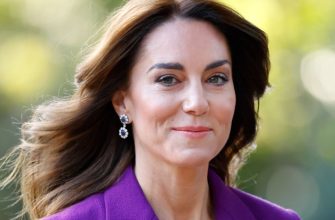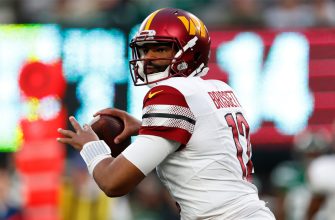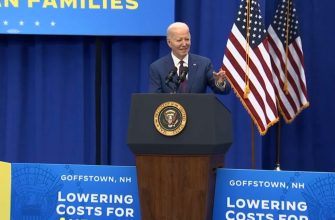With a week to go before election day, more than $4 million in independent expenditures have been spent by special interest groups hoping to influence the outcomes of the seven L.A. City Council races on the March 5 ballot. And more than half that amount has gone toward just two races – both in the San Fernando Valley.
As of Monday evening, Feb. 26, more than $2.45 million of the estimated $4.09 million in independent expenditures, or 60%, had been spent on just the District 4 and 12 races, with both races surpassing the $1 million mark from special interest spending, according to the latest filings with the city’s ethics commission.
In District 4, where Councilmember Nithya Raman is hoping to fend off two challengers, special interest groups have poured more than $1.4 million into either promoting or attacking her — or her best known challenger, Los Angeles Deputy City Attorney Ethan Weaver.
In District 12 in the Northwest Valley, more than $1.02 million had been spent by special interest groups – all in support of Councilmember John Lee or in attacking his opponent, former Los Angeles City Ethics Commission board president Serena Oberstein. The support for Lee comes amid allegations of ethics violations that the councilmember has vehemently denied and is contesting.
There is no doubt that spending by special interest groups can sway an election, but just how much bang are these groups getting for their bucks?
Cal State Northridge political science professor Tom Hogen-Esch said there comes a point when people’s mailboxes become so inundated with campaign mailers that it’s questionable how much information actually gets through to voters.
“After a certain point, the money doesn’t have the impact that people think it will. It reaches a saturation point and voters just take the mailers and put (them) right in the trash,” he said.
Still, that hasn’t stopped special interest groups from pumping money into the races.
District 4
Outside groups have spent more than $1.4 million on the Council District 4 race, the most of any of the L.A. City Council races.
With just three candidates on the ballot in that district, it’s possible that the race could be decided on March 5 without the need for a runoff in November. Any candidate who gets more than 50% of the vote wins the race outright. But if not, the top two finishers in next week’s primary election will face off in the fall.
With the stakes high, one of the big spenders in this race is a group sponsored by L.A.’s police union, the Los Angeles Police Protective League, which is waging a campaign against Councilmember Raman.
The group’s largest contributor is Douglas Emmett, a Santa Monica-based company that owns and operates office and luxury apartment buildings and is attempting to evict hundreds of tenants in a rent-controlled building in West L.A.
Raman chairs the City Council’s Housing and Homelessness Committee and has been a vocal advocate for tenant protections.
In one of its ads, the group criticized Raman for opposing the city’s anti-homeless encampment law known as 41.18, which bans encampments near schools, daycare centers and other “sensitive” areas. It further accused the councilmember of wanting to defund the police in order to pay for a “socialist agenda.” Raman, a registered Democrat, is endorsed by the Democratic Socialists of America’s L.A. chapter.
The incumbent was one of three councilmembers out of 15 to vote against the contract for police officers last August. That contract bumped up officers’ starting salaries by about 13% and provided annual raises which, along with bonuses, will amount to wage increases of 4% to 6% annually for four years.
Raman said in an interview that while all city employees deserve raises, she was concerned about the terms of the LAPD contract and its impact to the city’s budget. She says she thinks her vote on their contract, and her advocacy to expand unarmed crisis responses, are reasons the police union are trying to unseat her.
But she said that since taking office, the number of homeless people living on the streets and both violent and property crimes have gone down in District 4.
“We’ve addressed homelessness aggressively. … Crime – both violent and property crimes – (decreased). So it doesn’t feel like a good faith attack,” she said about some campaign materials that have come out against her.
Raman, who’s endorsed by Mayor Karen Bass, said she’s received over 100 endorsements. (Her website listed 97 endorsements as of Monday afternoon, but her campaign said the site hadn’t been updated.) Raman has been endorsed by groups including the progressive organization LA Forward, which is sponsoring a special interest group that has spent money to promote the candidate.
“I’m very, very proud of the coalition that I’ve built,” Raman said. “It speaks to the work that I’ve done in City Hall and the promises that I kept to the community that elected me. And I will say the money coming out against me also speaks to the work I’ve done and just how effective I have been in office.”
While independent expenditure groups have spent nearly $528,000 to campaign against Raman, other groups have spent over $325,000 to promote her candidacy.
Outside groups have also spent more than $579,000 to promote one of Raman’s challengers, Ethan Weaver. They include a group sponsored by the United Firefighters of Los Angeles City union and the political action committee for Thrive LA, a relatively new advocacy group which describes itself as “committed to restoring a safe, affordable, and prosperous Los Angeles.”
Thrive LA’s political action committee has also funded ads against Raman. Earlier this month, the Hollywood Chamber of Commerce’s PAC, which had contributed money to the Thrive LA PAC, issued a statement saying they support “positive dialogue” and did not condone the attack ads against Raman.
“The Hollywood Chamber of Commerce PAC played no role in the ads’ development or content. We donated to the Thrive LA PAC because we support its positive mission: ‘Support the election of pragmatic leaders to Los Angeles City and County government.’ We are disappointed with the decision to air these ads, regret that our funds were used to help support these messages, and encourage the Thrive LA PAC to stop airing them,” the Chamber’s PAC said in its statement.
A representative for the Chamber’s PAC did not respond to a message for further comment on Monday.
Sam Yebri, president of Thrive LA, declined to comment on the situation with the Hollywood Chamber of Commerce. In another recent interview, Yebri said Raman’s record has endangered Angelenos.
“Thrive LA found it imperative to inform voters about her votes and her statements so that they can make an informed decision about their families’ well-being,” Yebri said previously.
To be clear, independent expenditure groups aren’t allowed to coordinate their activities with the candidates.
Weaver, in a statement, said his own campaign has been a grassroots effort “powered by small contributions.”
“What’s at stake here is two competing visions for public safety and homelessness in Los Angeles,” Weaver stated. He went on to accuse Raman of being funded by “many of the same out-of-town donors who bankrolled (District Attorney) George Gascón’s campaign.”
“Our campaign is supported by L.A.’s firefighters, paramedics, police, 911 operators, and local businesses because they reject Councilmember Raman’s failed policies and support our vision for improving public safety and tackling the homelessness crisis,” Weaver said.
Fernando Guerra, a political science professor and director of the Center for the Study of Los Angeles at Loyola Marymount University, sees the level of activity by special interest groups as a counter-response to the progressive movements of the past few years – namely by the Democratic Socialists of America, which since 2020 has gotten three of their candidates – Councilmembers Eunisses Hernandez and Hugo Soto-Martínez in addition to Raman – elected to the L.A. City Council.
“What happened … was really the emergence of a progressive coalition that was able to get specific individuals elected,” Guerra said. “This, I think, has mobilized several groups to get more involved than they have before. It’s really a counter-mobilization.”
District 4 represents neighborhoods including Los Feliz, Silver Lake, Hollywood and the Hollywood Hills, Studio City, Sherman Oaks, Van Nuys and Reseda.
District 12
With just two names officially on the ballot, the winner in the District 12 race is expected to be decided next month without a runoff election in November.
District 12 includes the communities of Chatsworth, Granada Hills, North Hills, Northridge, Porter Ranch, Sherwood Forest and West Hills.
Since it’s do-or-die time for Councilmember Lee and his opponent, Oberstein, it’s not surprising that outside groups are spending heavily in this race during the primary, Guerra said.
“This is it … there is no runoff. This is the (race) that we all know is going to be over” after the primary, Guerra said. “So put all your money into this one because this is the one that will be decided March 5.”
As of Monday evening, groups that back Lee or oppose Oberstein had collectively spent more than $1.02 million. That’s nearly 2½ times the amount special interest groups spent four years ago in total to either promote Lee or attack his opponent in that race, Loraine Lundquist. In 2020, Lee won after capturing 50.6% of the vote – with less than 1.5 percentage points separating him from his opponent.
Pat Dennis, a political consultant for Lee, said the groups making independent expenditures to promote the councilmember are part of a broader coalition of support that the incumbent has built, including from labor organizations and Democrats and Republicans alike. Lee’s campaign also announced over the weekend that Mayor Bass had endorsed the council member.
“If you look at the (independent expenditure) spendings, it’s firefighters, police officers, business organizations like BizFed that represent small and large employers across the city. Those types of folks that are really critical to the quality of life across the city … they’re the ones backing John. They feel he’s the best to address those really vital issues” related to public safety, crime, job growth, homelessness and basic quality-of-life concerns, Dennis said.
Guerra, from Loyola Marymount University, believes the increased spending by special interest groups who support Lee this year reflects how close the race was four years ago.
Groups spending heavily to support Lee include the city firefighters and a group calling itself Residents, Small Businesses and Public Safety Professionals for a Safer and Cleaner LA Supporting Ethan Weaver and John Lee for City Council 2024. That group received funding from the police union, various business groups and real estate companies.
No special interest group had spent money in support of Oberstein — or to oppose Lee.
In a statement to the Los Angeles Daily News, Oberstein expressed optimism about her campaign. She noted that she’s the only candidate in the race to receive funds through a city program that provides matching dollars to candidates who meet certain criteria, including having received contributions of at least $5 from 100 individuals who actually live in District 12.
“I am the only candidate in this race to receive matching funds — a true display of our grassroots campaign and community support,” Oberstein stated. “I am not a politician, which is why hundreds of families from every part of the district are supporting me with their hard-earned money — they know I will be their champion in City Hall, and not an automatic vote for downtown special interests.”
“I think voters should ask themselves why special interests from outside of our community are spending more than a million dollars to keep John Lee in office,” she said.
Hogen-Esch, the CSUN professor, chalked up the support for Lee from special interest groups to the fact that he is an “entrenched incumbent” who’s been on the council since 2019 and worked in City Hall before that.
Hogen-Esch’s assessment was quickly dismissed by Lee’s consultant, Pat Dennis. “The ‘entrenched incumbency’ doesn’t have anything to do with it. That just glosses over the fact that John has a record of getting things done. He works with everyone to find solutions,” Dennis said.
As for the ongoing ethics case against Lee involving a trip to Las Vegas and a poker night in Koreatown, Hogen-Esch said he couldn’t predict whether those issues would derail the incumbent’s chances of being reelected.
The probable cause finding by Los Angeles Ethics Commission staff is not final. Whether Lee violated any rules will be determined at a future hearing of the Ethics Commission board.
Lee is fighting the staff’s allegations that he accepted gifts far in excess of the gift limit for city officials while he was chief of staff to then-Councilmember Mitch Englander, and that he failed to report the gifts, among other accusations.
The alleged gifts, worth thousands of dollars, reflected expenses incurred during an evening of poker in L.A.’s Koreatown plus a 2017 trip to Las Vegas, which included hotel amenities, gambling chips and drinks.
Lee insists he’s not guilty of the violations he’s been accused of and is suing the L.A. City Ethics Commission over its case.
Englander, Lee’s boss at the time, had also attended those events. In a separate case, Englander was accused of failing to report more than $20,000 in gifts he received during trips to Vegas and Palm Springs in 2017, for accepting gifts beyond the city’s gift limit for elected leaders, and for using his position for personal gain.
Englander pleaded guilty in 2020 to falsifying material facts. He was sentenced to 14 months in prison and surrendered to the U.S. Federal Camp in Tucson, Arizona, but was released early, in February 2022.
The money in other City Council races
Two other L.A. City Council races where special interest spending has topped the half-million dollar mark include District 10, where more than $679,000 has been spent in a five-candidate race – nearly all of it for or against the appointed Councilmember Heather Hutt or Assemblymember Reggie Jones-Sawyer.
District 10 represents a swath of L.A. stretching from Koreatown in Central Los Angeles to Baldwin Hills, the Crenshaw District and Leimert Park in South L.A.
And in District 14 more than $629,500 in independent expenditures – mostly from committees sponsored by labor organizations – has gone toward propping up Assemblymember Miguel Santiago. He’s hoping to beat incumbent Kevin de León and six other candidates. No other candidate in District 14 has benefited from special interest spending, including de León.
District 14 represents an area that includes downtown L.A. as well as Boyle Heights, Lincoln Heights, El Sereno and Northeast L.A.
Only one of the seven candidates in District 2 running to replace outgoing City Council President Paul Krekorian has benefited from special interest funding. More than $186,000 in independent expenditures have promoted former Assemblymember Adrin Nazarian, with $100,000 of it coming from the powerful L.A. County Federation of Labor. The district represents Valley residents in North Hollywood, Studio City, Sun Valley, Toluca Lake, Valley Glen, Valley Village and Van Nuys.
In District 8, the firefighters union contributed over half of the more than $75,000 in independent expenditure spending that has backed incumbent Marqueece Harris-Dawson. The councilmember is running against two other candidates to represent residents in parts of South L.A., from Baldwin Hills to Watts.
The firefighters union has also contributed nearly two-thirds of the nearly $63,000 in independent expenditures to promote incumbent Imelda Padilla over two other candidates in District 6. The district represents the communities of Arleta, Lake Balboa, North Hollywood, North Hills, Panorama City, Van Nuys and Sun Valley.
2024 presidential primary election
Election Day: March 5, 2024. Polls close at 8 p.m.
Early voting: You can vote at the Los Angeles County registrar’s office beginning Monday, Feb. 5. The registrar’s headquarters are at 12400 Imperial Highway, Room 3002, in Norwalk. That office is open from 8 a.m. to 4:30 p.m. Monday to Friday.
Vote-by-mail: Ballots began going out on Thursday, Feb. 1. You can submit VBMs in three ways: By mailing them to the registrar’s office (VBMs include return envelopes with the correct address and postage already included); by placing them in an official drop box; or by dropping them off at any county Vote Center.
VBM deadline: VBMs sent via mail must arrive no later than seven days after the election, but they must be postmarked by March 5. The deadline to place VBMs in a drop box or deliver them to a Vote Center is 8 p.m. on Election Day.
Vote Centers: Vote Centers open 10 days before Election Day. This year, that’s Saturday, Feb. 24. You can vote at any Vote Center in Los Angeles County. Prior to Election Day, the Vote Centers will be open from 10 a.m. to 7 p.m. On Election Day, they will be open from 7 a.m. to 8 p.m.
About the ballots: In California, the order races are listed on ballots goes from local to federal, meaning the nominees for president will be listed at the bottom. Except for presidential races, California’s primaries for “partisan” offices – now known as “voter-nominated offices” have a top-two system. That means the top two vote getters in a given race advance to the general election, regardless of political party.
To find a drop box or Vote Center and for more information: lavote.gov.









